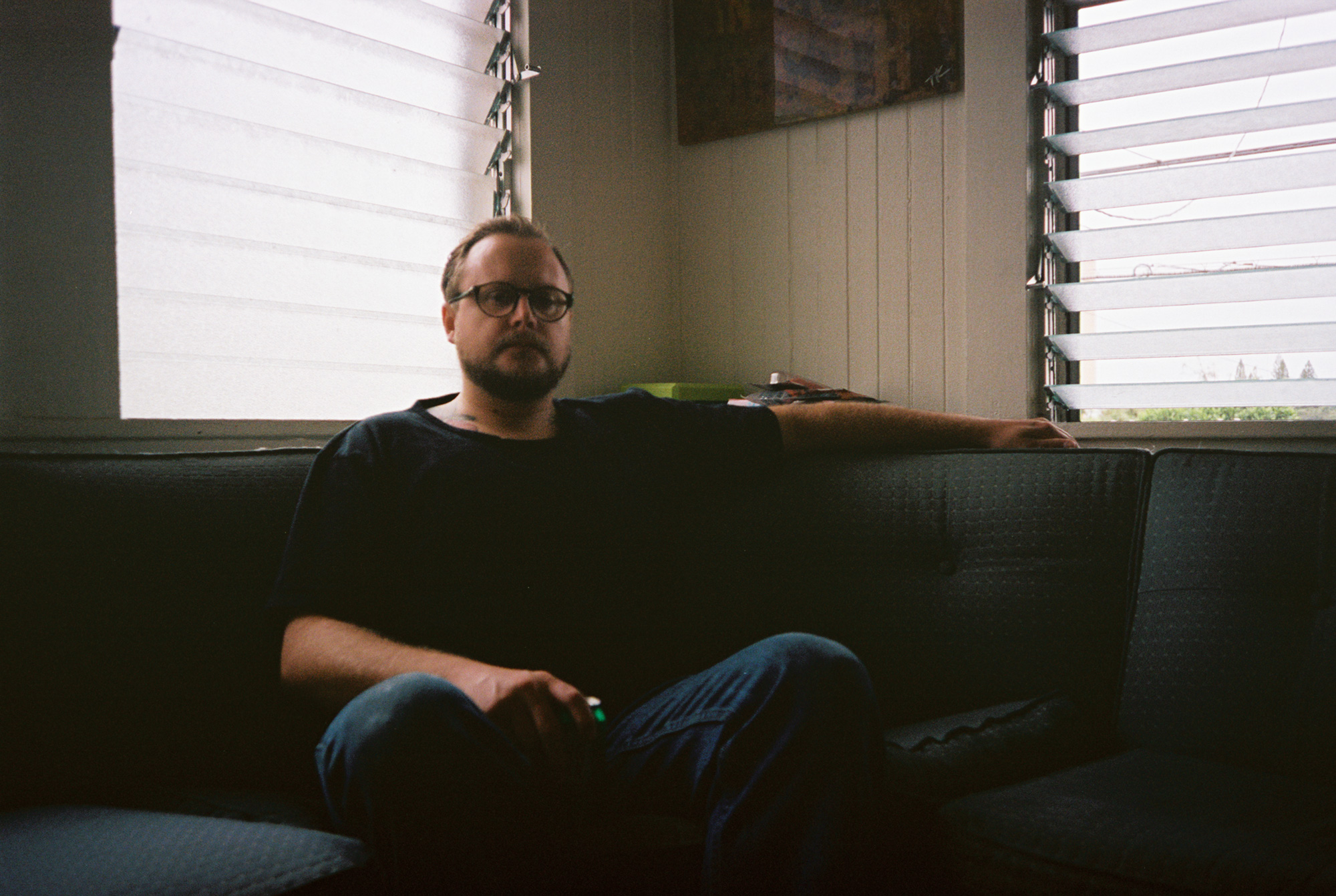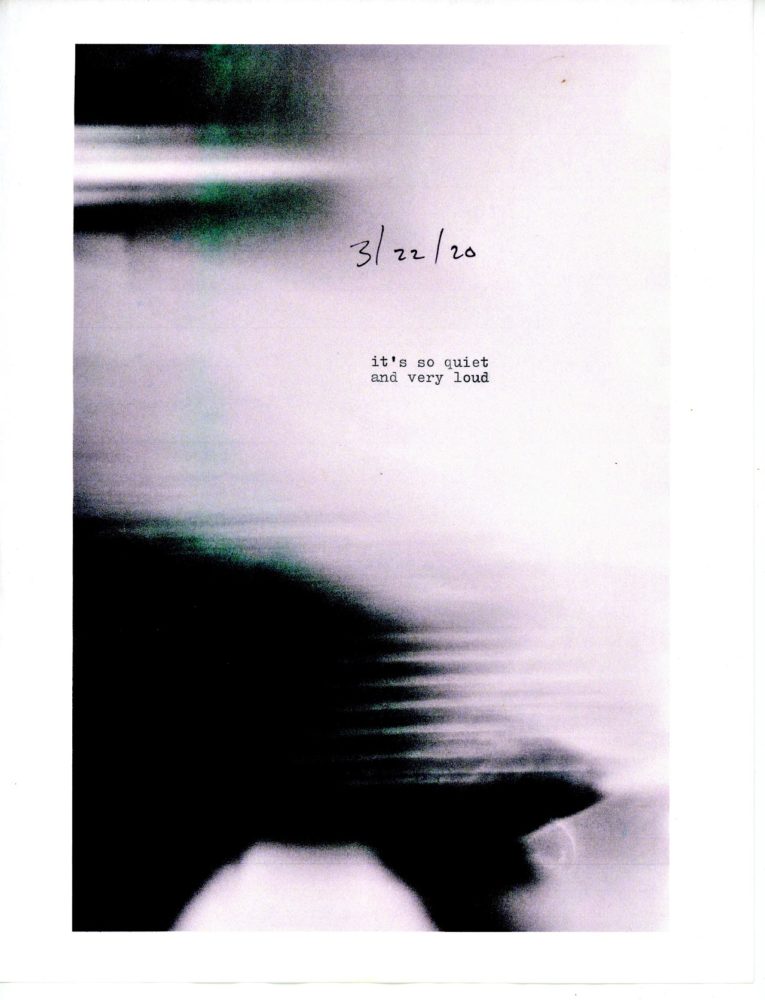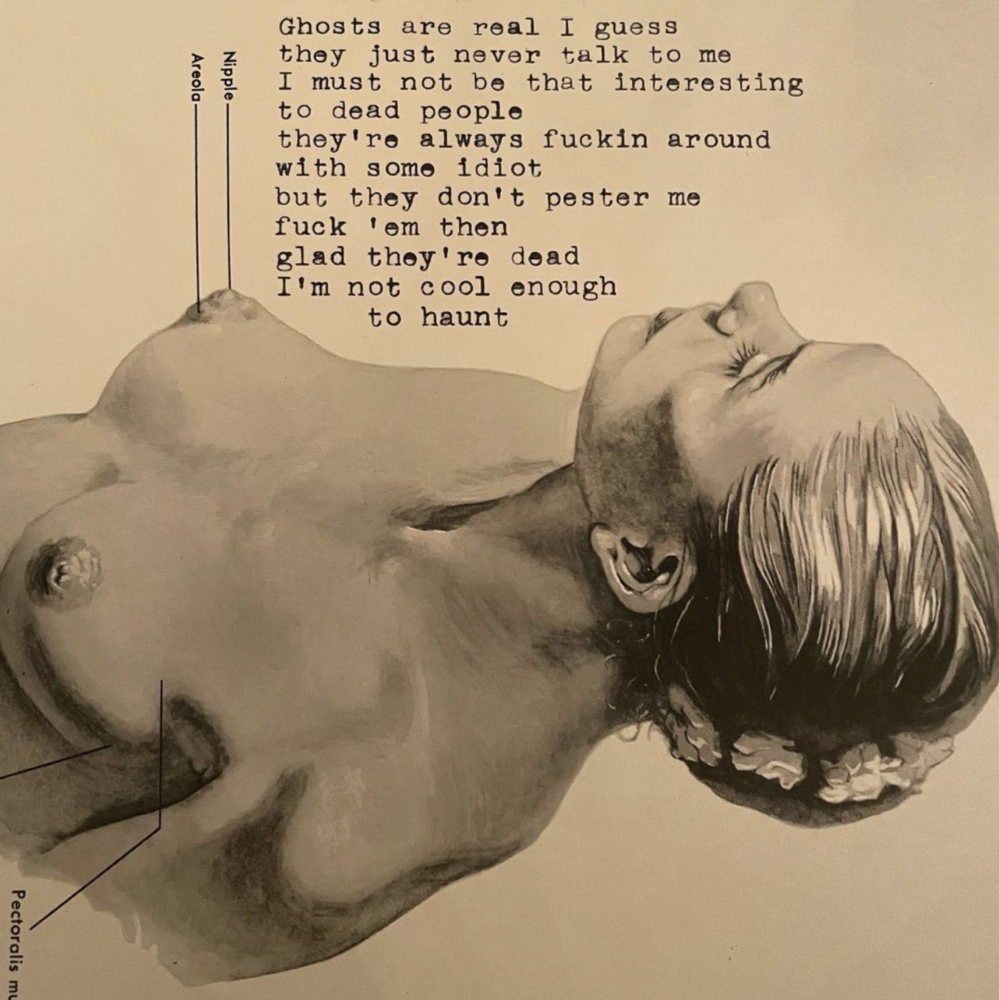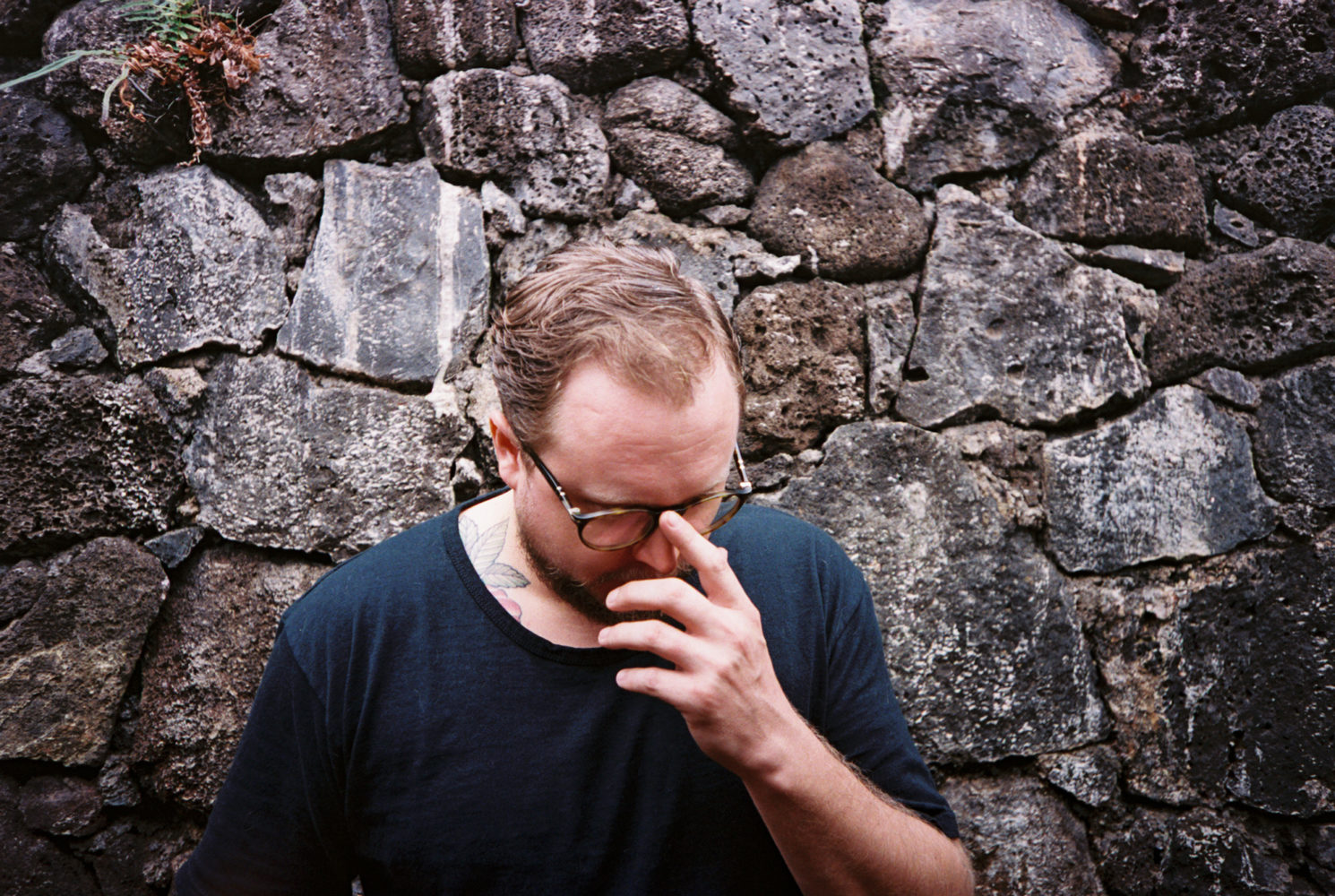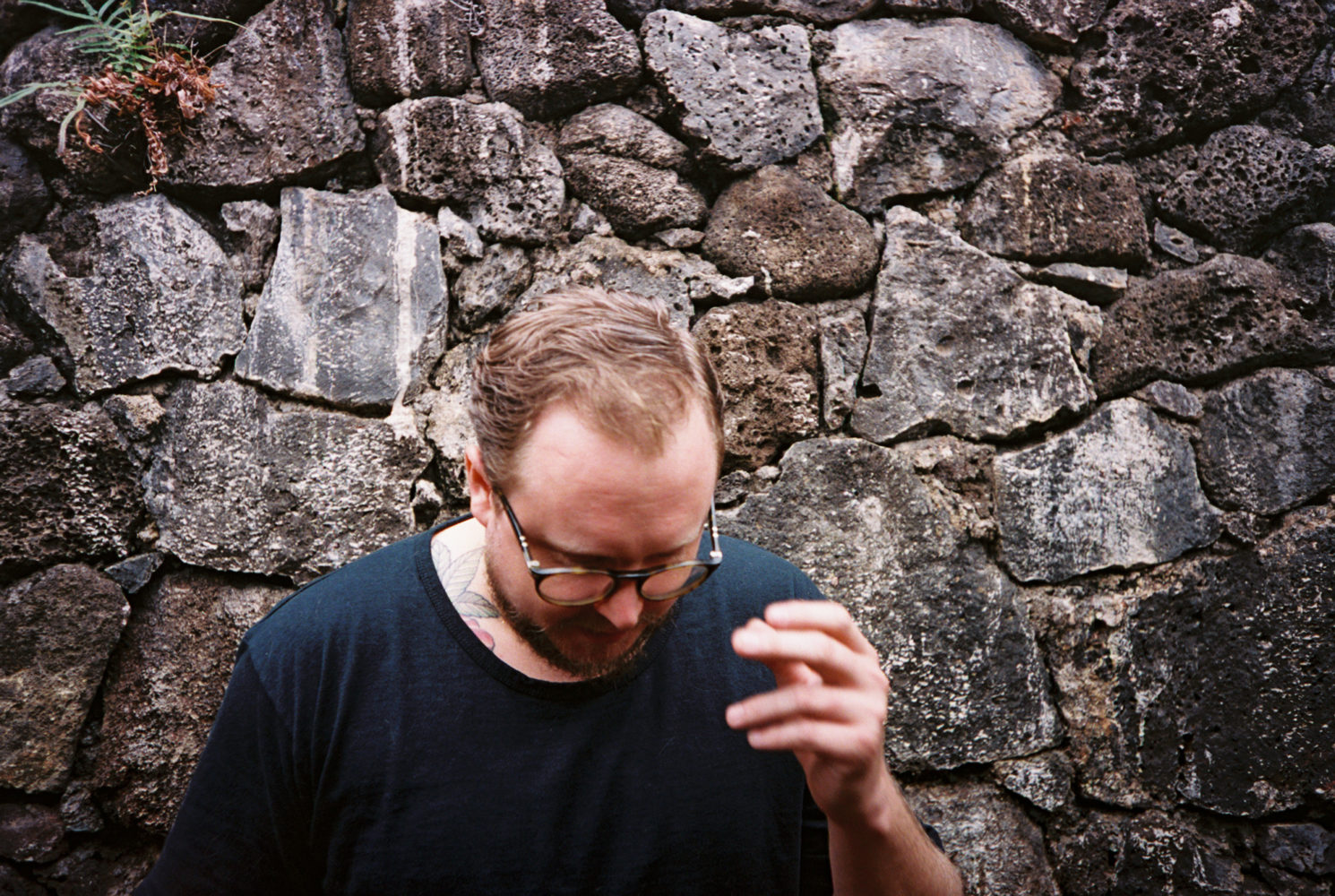The Honolulu poet’s debut collection is raw, tender, and an oath to persevere through everything that life throws at you.
Not all can articulate. The people who work at the online platform on which you are reading this introduction are paid to articulate, and they barely get by. The ability to articulate in such a way so as to convey emotion — or perhaps, more accurately, inspire actual feeling in another through words — is a magical, inimitable skill. When a word or phrase or series of such come together in a particular order which trigger within the reader some sort of love or fury, so much so that the breeze in the phrase is felt on the reader’s face, or the heartbreak in the words put lumps in the reader’s throat, that is often referred to as poetry.
Poetry is what Tony Kile does.
Kile has found a home and community in Chinatown, Honolulu, where he has been able to pursue his creative passions: a uniquely experimental photographer and a practiced painter, though writing is the only medium which he describes as being “imminent.”
Writing poems, for Kile, isn’t a creative outlet so much as a compulsion which must be satisfied. In his lines, he spills out a bit of himself, for better or worse, ugly or beautiful, and with great haste.
Love, fury, shame, joy, regret, and heart can be read and felt in the pages of his debut poetry collection Keep Going. In a fit of curiosity, Flux Hawaii has invited ourselves over to his home in Nu‘uanu Valley on a recent Sunday morning to ask how exactly one begins to articulate.
Nazareth Kawakami This question is coming from me, a fan. Crunchy or smooth peanut butter?
Tony Kile Crunchy. You’re eating peanuts.
NK Controversial take. You’re eating butter.
TK I don’t want paste, I want peanuts.
NK Then why don’t you just eat peanuts?
TK Most of the things are smooth. The jelly, the bread, you want some crunchy.
NK What about the toast?
TK Oh, you make toast.
NK You don’t make toast?
TK I make, like, a half sandwich with maybe 70 percent crunchy peanut butter and then 30 percent jam.
NK Why don’t you just buy peanuts and sprinkle them on then? The point of the butter is the butter texture.
TK This doesn’t feel so controversial, as maybe perhaps just something that you are trying to figure out in your own head.
NK I am controversed.
TK I think maybe you are just confused.
NK Why do you suppose one of your fans wanted me to ask you that?
TK Well, Miya [my coworker] hates me. Deeply. That’s not true. She’s a contrarian when it deals with me. Otherwise she is mostly easy to get along with.
It’s a painful thing to write how you’re feeling, and to share that with others. To put that in them.
Tony Kile, poet
NK Let’s start over. Why do you think you are so hated by everyone?
TK You’re here to ask about my book, right?
NK “Miya” is my favorite poem in the book. Other poems refer to names and people, as well. Is most of the content so personal or pertain directly to your life?
TK It’s all personal, I think. The thing about the writing is that it is one of the more painful things that I do. The other creative stuff is sort of a reprieve from whatever it is that I’m feeling. You have to be really in it and focused and trample over the same ground of feeling to make sure that you understand it and express it well. I think that I don’t have a choice in it, that it is going to come out one way or another, so I try to point it and focus it as best I can. I don’t know if there is so much inspiration or direct pertinence as maybe it is just a focusing of this thing that will come out and exist whether I like it or not.
NK Why’re you engaging in such a painful thing?
TK Well, painful isn’t always bad. It goes back to understanding. I want to understand and express these things. Jealousy, anguish, disdain, these are all gifts. You get to feel these things, so you ought to understand them. And again, I think that this writing would be happening anyway, and sort of without my permission.
NK Well, if it’s happening anyway, would you consider this a venture at all?
TK Yeah, definitely! I want to get better at it. I want to be more honest about it. I want it to be flat and sound like me. When you read it, I want you to hear my voice in your head. That’s just what good writing always is.
NK Well, what’s “good”? What is the goal?
TK I want it to be exactly what I would say if you were in front of me. I want to explain or convey something directly from me. I want to present a thing to you that wasn’t there before. I want to arrange words in an order that evoke in you something that didn’t exist. That’s what magic is. It’s a metaphor in a way. Abracadabra and all that, those are words that evoke something or do something.
NK How many years have you been practicing magic?
TK I’ve been writing for a long long time.
NK What’s the process like for putting this book together?
TK When I was first getting into all this, I’d buy these long sheets of butcher paper and tape them up in my place, and carry around these markers so that if I had a thought I’d be able to write it up there and have it all in one place, and that did a couple of things. It made it so that I couldn’t get away from it after I wrote it. I had to look at it and obsess over it. I really had to sit with them. And then I moved onto typing. The form of a typewriter is that it’s this formal thing, and that made me think about things for a long time before I’d put it in ink because I didn’t want to lose hold of it without it being perfect. Then I started taping the sheets all over my walls, like the butcher paper. In the book, you see a lot of the pages have tape on the top of the page. That also forced me to live with these things and revise even further to get them how I wanted them.
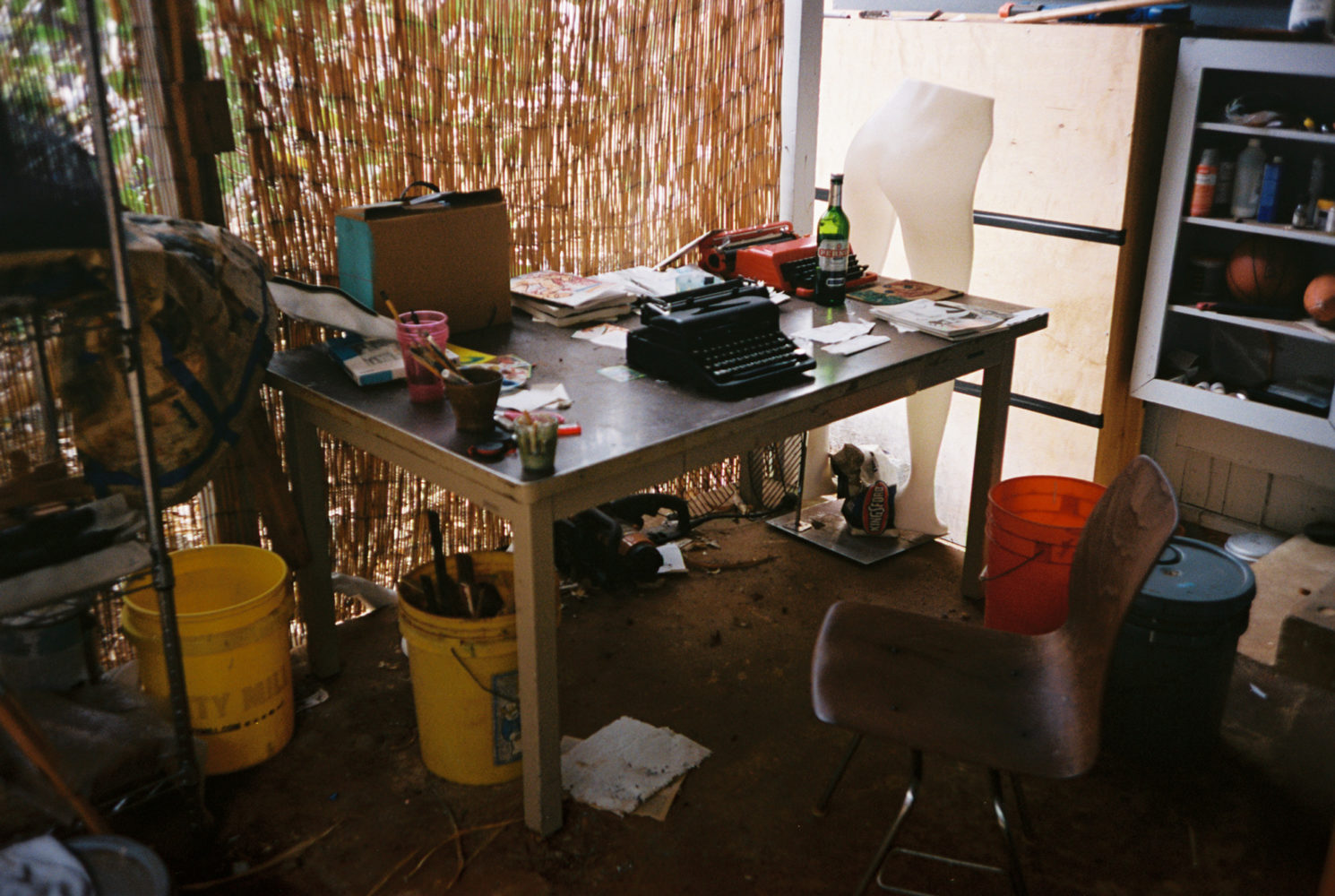
NK Can you talk a little more about the form of the typewritten word?
TK Typewriters are a fixed font. All the letters take up the same amount of space. So in my head I’d start writing things in alignment. This got hard because it’d start getting bigger and bigger. Like, each of the words takes up a certain number of spaces, so I’d start counting the numbers so that certain things would line up up and down and across, and on the page. For example, “where,” 5, space, 6, “is,” 8, space, 9, and I’d go on like that. There are a few pieces in the book where each line is 20-something characters and looks like a brick because I counted them off in my head before typing them to make sure they line up. And that’s pretty, meter and measure matters, but it was a thing born of utilizing a very intentional piece of equipment to write.
NK Where does the title come from?
TK It’s a painful thing to write how you’re feeling, and to share that with others. To put that in them. A lot of the things covered or referred to in the work are not very comfortable. It’s not easy. I wanted to leave all of this for a long, long time. So in so many words, this book’s title is asking you not to leave, but keep going. If I’m staying, you’re staying. It could also be asking you to keep reading through even though it might be a little rough.
NK Many poetry collections have themes that carry through and string together each piece. How would you characterize the themes of this book, if there is one?
TK I’m not sure. A lot of the work in the collection is difficult to take in, approaching topics that aren’t very comfortable to read, and there’s this sort of violent nature to it. Most of my writing is kind of explicit. Maybe not most. There are some love poems in there.
NK What do you consider violent?
TK Violence is a pretty big term, you’re right. Depends on how you’re using it. You can do an innocuous or positive thing violently. Sex and intimacy are sort of inherently violent.
NK Do you characterize violence in this conversation as being an intrusion or an exertion?
TK Yeah, not necessarily violent in the normal way we’d use the word, but if I am sharing something really intimate, that is a scary intrusive thing, that could be violent. But again, you can do anything violently. I don’t hear so good, so I’m a violent thing in the room in that I am loud, I am constantly forcing people to talk louder or repeat themselves, forcing my needs on them.
NK I could violently order a drink.
TK You could just live with violence all of the time.
NK Buy this book and you can live violently all of the time.
TK Exactly, that’s a good tagline. This collection is a play by play of how to be a really violent pained difficult person. Good luck.
Keep Going is a collection of poems by Tony Kile and is published by Deuxmers, LLC. It is available at deuxmers.com.

